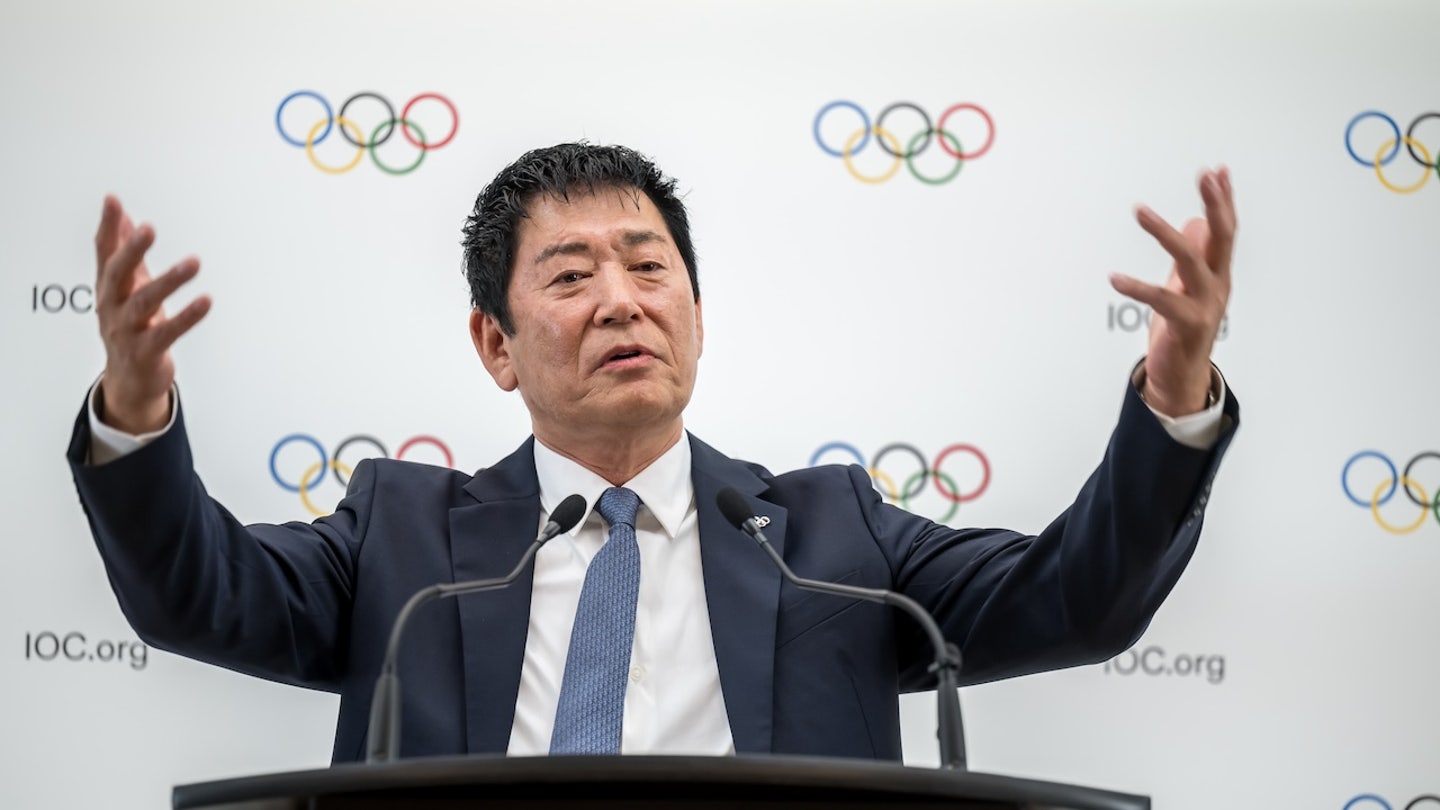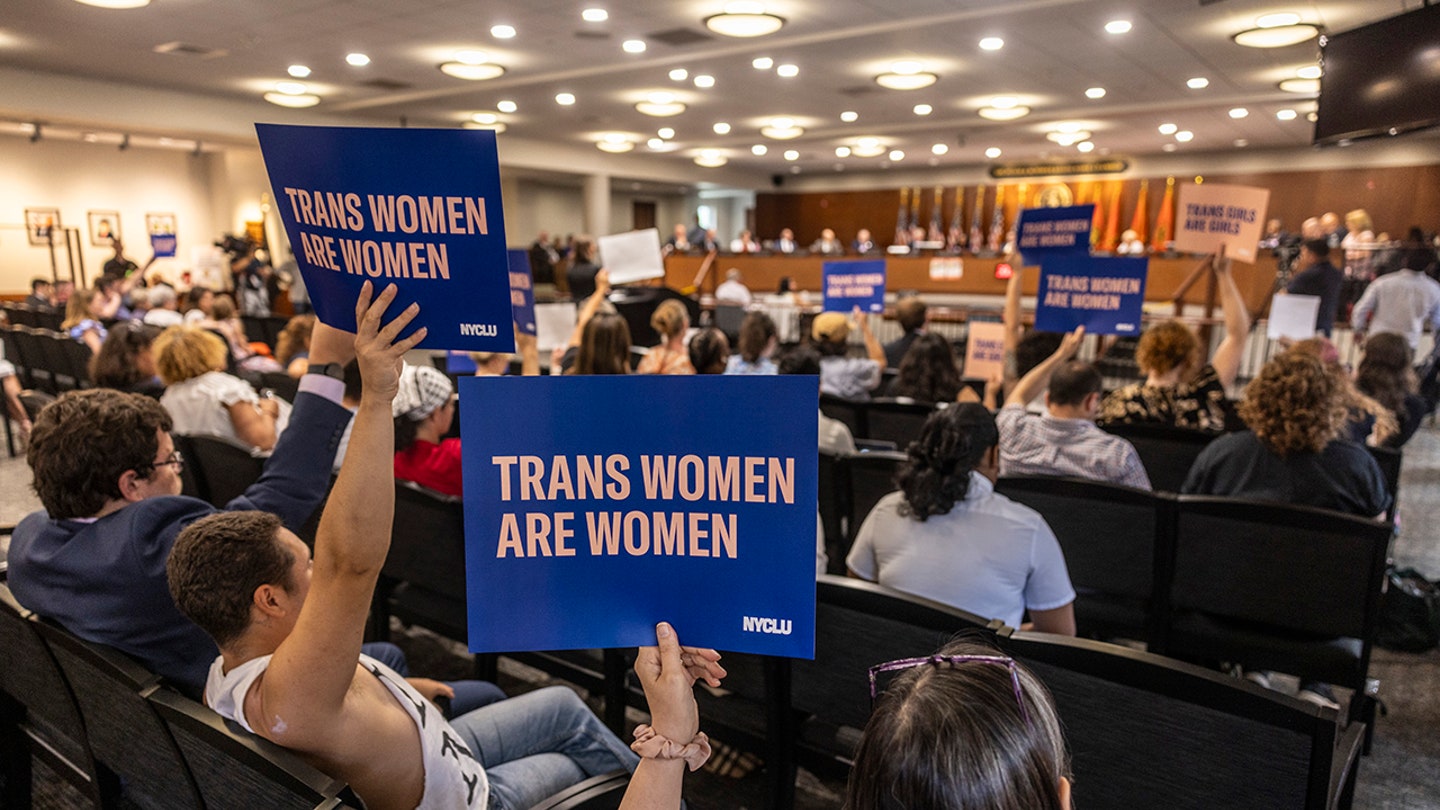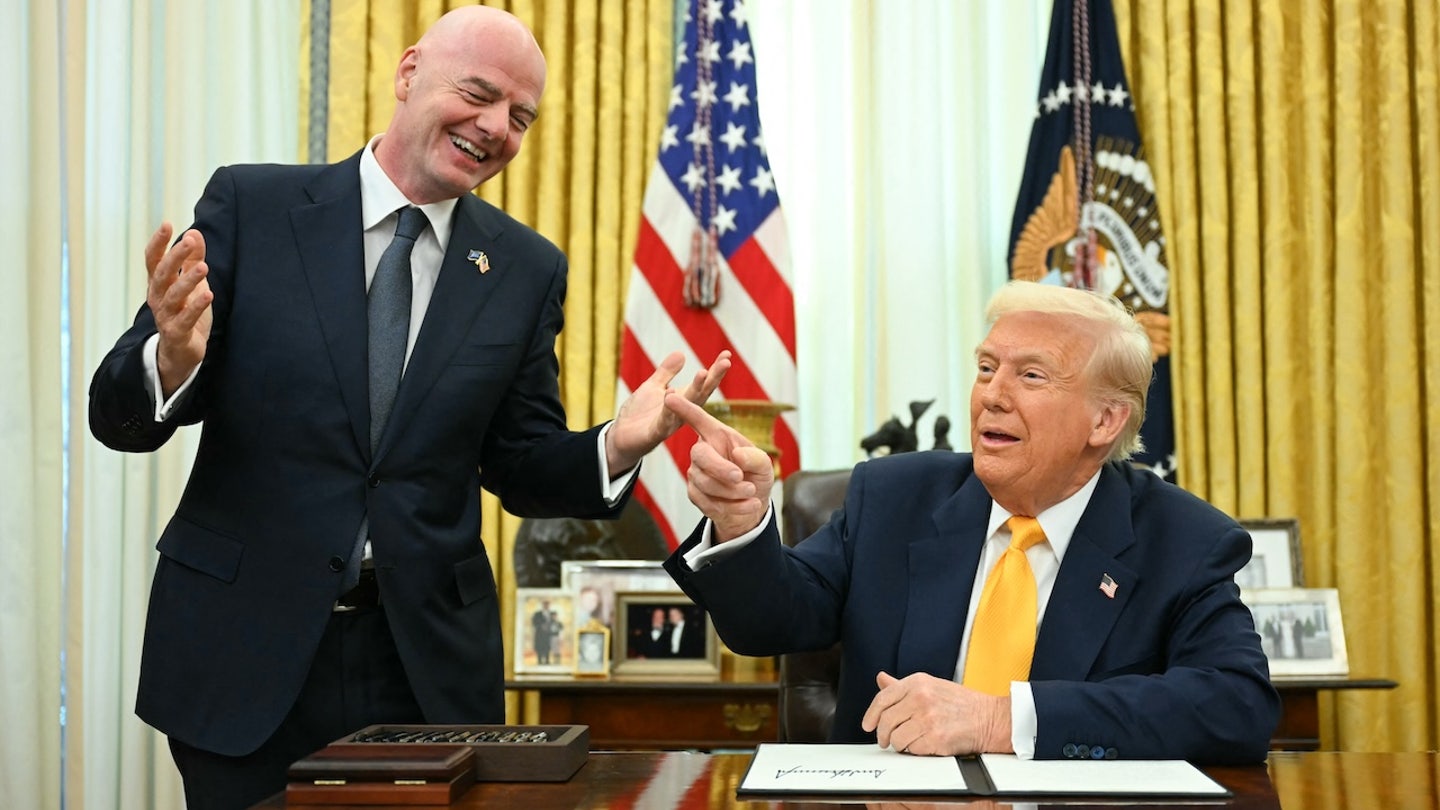
Indonesia's treatment of Israeli gymnasts prompts criticism but also acceptance from sport's global chief
Entities mentioned:
- Indonesian government: Control, Security, Unity
- International Gymnastics Federation (FIG): Unity, Obligation, Professional pride
- Morinari Watanabe: Duty, Diplomacy, Unity
- International Olympic Committee (IOC): Justice, Unity, Professional pride
- Israeli national gymnastics team: Competitive spirit, Recognition, Self-respect
Article Assessment:
Credibility Score: 75/100
Bias Rating: 55/100 (Center)
Sentiment Score: 30/100
Authoritarianism Risk: 55/100 (Mixed/Neutral)
Bias Analysis:
The article presents multiple viewpoints, including those of FIG, IOC, and the Israeli team. While it leans slightly towards criticizing Indonesia's decision, it also presents Indonesia's security justification.
Key metric: International Sports Participation Equality
Let me tell you something - this situation is a GAME-CHANGER, folks! We're seeing a major PENALTY FLAG thrown on the field as Indonesia's government blocks Israel from competing in the gymnastics World Championships. This is like denying a team their shot at the playoffs! The FIG and IOC are trying to play referee, but they're caught between a rock and a hard place. On one side, we've got the Indonesian government playing defense, citing security concerns. On the other, we've got the Israeli team being denied their chance to step up to the plate. The FIG is walking a tightrope here, folks, trying to balance fair play with player safety. But let's be clear - in the world of international sports, EVERYONE should get their shot at glory. This is a fourth-quarter decision that could have major implications for future tournaments. The question now is: will other countries follow Indonesia's playbook, or will the sports world unite to ensure a level playing field for all? This is the kind of controversy that can change the whole game, and I'm telling you right now, we'll be feeling the aftershocks of this decision for seasons to come!

Trans athlete researcher rejects open category proposal at conference, says most would 'quit their sport'
Entities mentioned:
- Joanna Marie Harper: Determination, Professional pride, Justice
- Jon Pike: Fairness, Professional pride, Duty
- Transgender Athletes: Recognition, Self-respect, Competitive spirit
- State Governments: Control, Fairness, Obligation
Article Assessment:
Credibility Score: 70/100
Bias Rating: 55/100 (Center)
Sentiment Score: 40/100
Authoritarianism Risk: 35/100 (Generally Democratic)
Bias Analysis:
The article presents viewpoints from both sides of the debate, quoting experts with opposing views. However, it gives slightly more space to Harper's perspective, potentially leaning towards a more trans-inclusive stance.
Key metric: Gender Equality in Sports Participation
Let me tell you something, folks - this transgender athlete debate is turning into a FULL-COURT PRESS! We've got players from both teams bringing their A-game to this heated match-up. On one side, we've got Joanna Marie Harper, a real MVP for trans athletes, stepping up to the plate and REJECTING the idea of an open category faster than a power forward swats away a weak layup attempt. She's saying loud and clear that forcing trans women to compete with cisgender men is like asking a lightweight boxer to step into the ring with heavyweights - it's just not a fair fight! But hold on to your jerseys, because on the other side, we've got Jon Pike calling for a whole new playing field with this open category idea. It's a bold strategy, Cotton, let's see if it pays off for him! Meanwhile, state governments are running their own defensive formations, with 29 states already putting up a WALL against trans athletes in women's sports. This is a high-stakes game, folks, and we're only in the second quarter. The scoreboard on gender equality in sports is lighting up like it's championship night, and I'm telling you right now, this match is going into overtime!

UK authorities seek to reverse decision to ban Maccabi Tel Aviv fans from Villa game
Entities mentioned:
- British officials: Justice, Security, Duty
- Maccabi Tel Aviv: Competitive spirit, Pride, Self-respect
- Keir Starmer: Justice, Righteousness, Unity
- UEFA: Fairness, Unity, Professional pride
- Aston Villa: Security, Professional pride, Obligation
- West Midlands Police: Security, Duty, Wariness
- Jack Angelides: Indignation, Justice, Competitive spirit
Article Assessment:
Credibility Score: 75/100
Bias Rating: 45/100 (Center)
Sentiment Score: 35/100
Authoritarianism Risk: 25/100 (Generally Democratic)
Bias Analysis:
The article presents multiple perspectives, including government officials, police, and team representatives. It balances security concerns with criticism of the ban, maintaining a relatively neutral stance.
Key metric: International Sports Relations
Let me tell you something, folks - this is a GAME-CHANGING play in the world of international soccer! We've got a real defensive struggle going on between British officials and Maccabi Tel Aviv fans. The UK is trying to pull off a last-minute substitution, reversing that fan ban faster than a striker on a breakaway! But make no mistake, this isn't just about soccer - it's about fair play and sportsmanship on a global scale. The Prime Minister is stepping up to the plate, calling an audible to overturn what he sees as the wrong call. UEFA's throwing the challenge flag, urging the Brits to let those Israeli fans into the stadium. It's fourth and long for diplomacy, and they're going for it! This is the kind of high-stakes match that separates the champions from the also-rans in international relations. I'm telling you right now, how they handle this could be the difference between a gold medal in global cooperation and a red card for discrimination. The clock is ticking, the pressure's on, and the whole world is watching to see if they can pull off this crucial play before the final whistle!

‘It’s easier to fight the whole world than to fight yourself’: Why transgender swimmer Lia Thomas wouldn’t change a thing
Entities mentioned:
- Lia Thomas: Self-respect, Determination, Professional pride
- University of Pennsylvania: Obligation, Wariness, Self-preservation
- World Aquatics: Control, Competitive spirit, Justice
- Schuyler Bailar: Unity, Enthusiasm, Recognition
Article Assessment:
Credibility Score: 75/100
Bias Rating: 45/100 (Center)
Sentiment Score: 55/100
Authoritarianism Risk: 35/100 (Generally Democratic)
Bias Analysis:
The article presents multiple perspectives, including Thomas's personal experiences and the actions of governing bodies. While sympathetic to Thomas, it also acknowledges the controversy and opposing viewpoints.
Key metric: Transgender Athlete Participation
Let me tell you something - this story is a GAME CHANGER in the world of sports! Lia Thomas has been swimming upstream against a tidal wave of controversy, folks. She's been in the fight of her life, not just in the pool, but outside it too. This athlete has shown the heart of a champion, pushing through the rough waters of public scrutiny like a true marathon swimmer. But make no mistake, the opposition has been playing full-court press defense. We've seen University of Penn make a fourth-quarter move, modifying those record books faster than a quick-change artist. And World Aquatics? They've thrown down the gauntlet with a policy change that's sidelined Thomas quicker than a red card. But I'm telling you right now, this swimmer isn't throwing in the towel. She's regrouping, finding her stride, and showing the resilience of a true MVP. It's a whole new ballgame for transgender athletes, and Thomas is leading the charge like a quarterback calling audibles at the line of scrimmage. This is the kind of determination that separates the all-stars from the bench warmers, folks!

FIFA says US government has final say on World Cup host cities' safety amid Trump's threats to Boston
Entities mentioned:
- FIFA: Professional pride, Security, Duty
- Donald Trump: Power, Control, Competitive spirit
- Michelle Wu: Pride, Determination, Loyalty
- Gianni Infantino: Professional pride, Influence, Obligation
- Boston: Pride, Recognition, Legacy
Article Assessment:
Credibility Score: 75/100
Bias Rating: 55/100 (Center)
Sentiment Score: 35/100
Authoritarianism Risk: 45/100 (Mixed/Neutral)
Bias Analysis:
The article presents multiple perspectives, including Trump's threats, FIFA's stance, and Wu's response. While it leans slightly towards emphasizing the controversy, it maintains a relatively balanced approach in its reporting.
Key metric: International Relations and Diplomacy
Let me tell you something - this World Cup drama is heating up like a championship final! We've got a real power play unfolding here, folks. Donald Trump is coming in hot, trying to call an audible on Boston's hosting duties. But FIFA's not about to let anyone run interference on their game plan! They're playing defense, reminding everyone that when it comes to safety, the US government's got home field advantage. This is a crucial moment, ladies and gentlemen. Boston's got to step up to the plate and show they've got what it takes to host on the world stage. Mayor Wu's in the hot seat now - she's got to coach her team to victory and prove Boston's got that championship mentality. I'm telling you right now, this is a make-or-break moment for US soccer diplomacy. It's fourth quarter, the clock is ticking, and the whole world is watching to see if Team USA can pull off this hosting gig without fumbling the ball!

California girls' volleyball team with trans player sees 10th match forfeited amid controversy
Entities mentioned:
- Jurupa Valley High School girls' volleyball team: Competitive spirit, Unity, Determination
- Alyssa McPherson: Justice, Self-respect, Moral outrage
- AB Hernandez: Competitive spirit, Recognition, Self-preservation
- California Interscholastic Federation (CIF): Obligation, Control, Professional pride
- Gavin Newsom: Ambition, Influence, Wariness
- Donald Trump: Power, Moral outrage, Influence
Article Assessment:
Credibility Score: 75/100
Bias Rating: 55/100 (Center)
Sentiment Score: 35/100
Authoritarianism Risk: 40/100 (Generally Democratic)
Bias Analysis:
The article presents multiple perspectives, including those of transgender athletes, protesting players, and political figures. While it leans slightly right by emphasizing controversy, it maintains a relatively balanced approach.
Key metric: Gender Equality in Sports
Let me tell you something, folks - this story is a GAME-CHANGER! We're seeing a full-court press of controversy in California high school volleyball, with teams forfeiting left and right like they're dodging a spike from the opposing side. The Jurupa Valley squad is facing a defensive wall of forfeits, but they're showing true championship mentality by staying in the game. This is a classic matchup of inclusivity versus traditional competition, and both sides are digging deep into their playbooks. The political power players are stepping onto the court too, with Governor Newsom trying to find the middle ground while Trump is calling for a full-court press against transgender athletes. It's a high-stakes match with no clear winner in sight, and the clock is ticking as we head into the postseason. I'm telling you right now, this is one for the record books!

Court rejects Israel’s appeal after Indonesia refused to grant team’s visas to artistic gymnastics world championships
Entities mentioned:
- Court of Arbitration for Sport: Justice, Duty, Impartiality
- Israel Gymnastics Federation: Competitive spirit, Pride, Justice
- International Gymnastic Federation (FIG): Professional pride, Obligation, Wariness
- Indonesia government: Moral outrage, Unity, Control
- Artem Dolgopyat: Competitive spirit, Pride, Recognition
Article Assessment:
Credibility Score: 75/100
Bias Rating: 55/100 (Center)
Sentiment Score: 30/100
Authoritarianism Risk: 45/100 (Mixed/Neutral)
Bias Analysis:
The article presents facts from multiple perspectives, including Israel, Indonesia, and international sports bodies. While it mentions the broader context of the Gaza conflict, it doesn't overtly favor either side's position.
Key metric: International Sports Participation
Let me tell you something, folks - this is a RIDICULOUS situation unfolding on the global gymnastics stage! We're seeing a real clash of titans here, with Israel's gymnastics squad getting shut out of the big dance in Jakarta. It's like they've been hit with a blindside tackle before the game even started! The Court of Arbitration for Sport, acting as the ultimate referee, has blown the whistle on Israel's Hail Mary attempt to get back in the game. Meanwhile, Indonesia is playing some serious defense, refusing to let Team Israel step foot on their turf. The International Gymnastic Federation? They're caught in the middle like a deer in the headlights, folks! This is a fourth-quarter drama that could change the whole landscape of international gymnastics. With Olympic gold medalist Artem Dolgopyat warming up on the sidelines, Israel's hopes of defending their title are hanging by a thread. It's crunch time, and the clock is ticking!

Texas Tech investigates after Kansas football coach says pocket knife was thrown at staffer
Entities mentioned:
- Lance Leipold: Righteousness, Moral outrage, Professional pride
- Texas Tech: Self-preservation, Obligation, Control
- Joey McGuire: Duty, Self-preservation, Unity
- Texas Tech fans: Pride, Competitive spirit, Enthusiasm
Article Assessment:
Credibility Score: 75/100
Bias Rating: 50/100 (Center)
Sentiment Score: 25/100
Authoritarianism Risk: 30/100 (Generally Democratic)
Bias Analysis:
The article presents multiple perspectives, including quotes from both coaches involved. It reports on the incident and investigation without taking sides, maintaining a balanced approach.
Key metric: NCAA Football Fan Conduct and Safety
Let me tell you something - this story is RIDICULOUS! We've got a MAJOR LEAGUE FUMBLE in fan conduct at Texas Tech! Coach Leipold is stepping up to the plate, calling out this dangerous play like a true team captain. The Red Raiders' fanbase is playing with fire, folks! This isn't just unsportsmanlike conduct, it's a potential game-ender for stadium safety. Texas Tech needs to huddle up and execute a full-court press on security measures before someone gets injured on the sidelines. It's fourth quarter for the Big 12 officials - they need to blow the whistle on this behavior and lay down the law! This incident is a real Hail Mary for college football's reputation, and it's time for Texas Tech to show some championship-level crowd control!

Patriots' Mike Vrabel chides NFL officials after penalty-filled win over Saints
Entities mentioned:
- Mike Vrabel: Competitive spirit, Professional pride, Indignation
- NFL Officials: Duty, Control, Obligation
- New England Patriots: Ambition, Determination, Competitive spirit
- Walt Anderson: Professional pride, Duty, Obligation
- Ramon George: Professional pride, Duty, Obligation
- John Streicher: Professional pride, Loyalty, Duty
Article Assessment:
Credibility Score: 75/100
Bias Rating: 55/100 (Center)
Sentiment Score: 40/100
Authoritarianism Risk: 25/100 (Generally Democratic)
Bias Analysis:
The article presents both Vrabel's criticism and factual data about penalties. It leans slightly towards the Patriots' perspective but includes context about broader NFL officiating issues.
Key metric: NFL Team Penalty Rates
Let me tell you something - this story is RIDICULOUS! The Patriots are getting flagged left and right, but they're still marching down the field like a championship team! Coach Vrabel is stepping up to the plate, calling out the refs for what looks like some seriously questionable calls. It's fourth quarter in the season, folks, and the Patriots are showing that championship mentality, overcoming these obstacles like true athletes. But I'm telling you right now, if the officials don't get their act together, we're looking at a whole different ball game. This is the kind of adversity that separates the contenders from the pretenders, and right now, the Patriots are proving they're in it to win it!

Former Roanoke women's swimmer rips Spanberger for refusing to commit to protecting women's sports
Entities mentioned:
- Abigail Spanberger: Ambition, Self-preservation, Wariness
- Winsome Earle-Sears: Competitive spirit, Righteousness, Determination
- Lily Mullens: Justice, Indignation, Competitive spirit
- Jason Miyares: Justice, Duty, Professional pride
- Roanoke College: Self-preservation, Obligation, Control
Article Assessment:
Credibility Score: 70/100
Bias Rating: 65/100 (Lean Right)
Sentiment Score: 35/100
Authoritarianism Risk: 40/100 (Generally Democratic)
Bias Analysis:
The article leans right, giving more space to conservative viewpoints and framing the issue as a clear-cut matter of protecting women's sports. While it includes some opposing views, the overall tone favors the conservative position.
Key metric: Gender Equality in Sports
Let me tell you something, folks - this political matchup is turning into a real GRUDGE MATCH! Spanberger's dodging the question like a running back avoiding tackles, while Earle-Sears is going on the offensive with a full-court press on women's sports rights. Lily Mullens, a true champion for her cause, is calling foul on Spanberger's wishy-washy play. This is RIDICULOUS! We're seeing a classic defensive strategy from Roanoke College, but Miyares is blowing the whistle on their game plan. I'm telling you right now, this is a fourth-quarter showdown that could decide the championship of Virginia's political arena! The crowd is on their feet as we watch these players duke it out over the future of women's athletics. It's do-or-die time, and these competitors are leaving it all on the field!